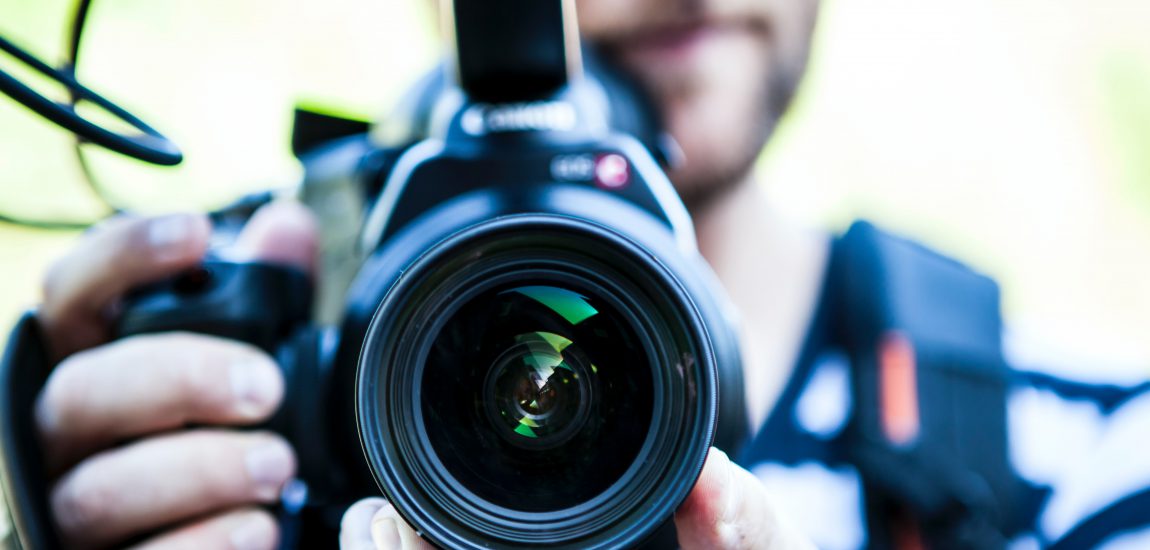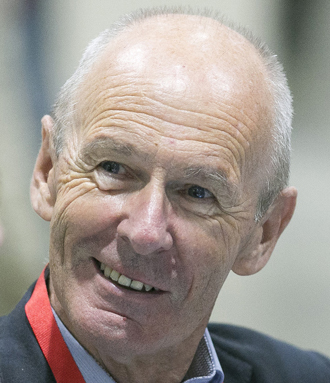
Talking to the media – Tips from Tom Parkhill, Goldschmidt Press Officer
Journalists are human. Like everyone else, they appreciate it when you make their life easy. If you give them a good story, they will be delighted, and they are generally kind to scientists. It can be difficult communicating your story to a non-specialist, but it can also be great fun and allow you to connect with a large audience. Sometimes, our stories can have a real impact, e.g., with public policy.
There are no fixed rules in talking to the press, but these notes might help.
Do I have to talk to the press?
No. Talking to the press is not compulsory, so if you don’t feel you are the right person, or feel uncomfortable or nervous, it’s okay to politely decline. But don’t be put off simply because the science is simplified: it’s important that science reaches a mass audience. If you don’t want to be involved, a journalist will appreciate it if you suggest someone else they could speak to instead. If it’s a controversial area, or if you have an official position (e.g., head of a national society), then it may be wise to comment, even if you don’t add much to the issue. Otherwise, the journalist could state that you or your organisation “declined to comment”, which can give them impression you have something to hide.
Journalists will start with their preferred contacts. If you don’t provide a comment, another person or organisation may provide one instead: if a journalist wants a comment, they will contact people until they get oneIf the other people are less qualified to comment, you could miss an opportunity to promote good science.
What happens if I'm called unexpectedly?
You never have to do something straight away. If someone calls and you are unprepared, find out why they are calling, and confirm that the enquiry falls within your area of expertise. Don’t be afraid to ask who they are, what they want from you, and whether they have an angle for their story. It is OK to offer to call them back after a short break, when you have had time to gather your thoughts. However, remember that journalists are usually under time pressure. If they don’t hear from you soon, they will move on to someone else.
Journalists
Not all science journalists have a background in science, and even if they do, it is unlikely to be in your specialism. They may be expected to cover nuclear power in the morning and coronavirus in the afternoon. They are experts at translating complex science into an engaging, accessible story, but you should be prepared to explain your science very clearly and in simple terms. When current events have a scientific angle, such as an earthquake, they may even be covered by general correspondents, who have no science background.
What to say?
If you are being contacted about your research, it’s important that you have just 2 or 3 points at most you want to put over. Too much detail can confuse both the journalist and their audience. Make sure that you get these points over in any interview. If you listen to any well-prepared interviewee, this is what they do. It might be helpful to listen to a politician being interviewed. They are masters of bringing the conversation back to the point that want to make.
You can structure these points as follows:
- What did you do (and why)?
- What did you find out?
- What does it mean to the public? What are the larger implications? Generally, this is the part the press and public are interested in.
For example, if you discover a new green method to obtain lithium from seawater, that’s of interest to (some) scientists. If you can relate this to the price of cars or computers which use lithium batteries, then it becomes interesting to a much wider audience.
You may also be asked to comment on someone else’s work. It is common for journalists to check the story with an external expert; that’s good, it means that they are doing their job well, not just accepting what is put in front of them. If you are not the right person to comment, then say so. It is okay to be critical, but keep it polite and constructive. Ask the journalist to give you as much information as possible (e.g. are they reporting on published work? If so, ask them for the paper). It’s ok to ask them for a couple of hours so that you can understand the work better – don’t be pushed into an instant response. If possible, send comments to journalists by email.
Geochemistry...
Chemistry can be a daunting subject that sometimes intimidates non-specialists. Often, the temptation is to begin a story with the chemistry, and then move on to the implications. However, it can work better if you begin with the implications, and then go into detail. In any good story, the main conclusion is given up front.
For example, in 2013 we were covering a story on the platinum content of the Chelyabinsk meteorite. Most journalists would not have been interested in this (too much chemistry, no general interest), but the researcher mentioned in passing that the geochemistry suggested the meteorite had experienced a collision with a celestial body before falling to Earth. This became the story that attracted media coverage, including from NBC News (see below). The story started with the “near-miss”, and the explanation of how geochemical data led us to this conclusion was explained below.
Audience
It is important to consider who the story is aimed at. A New Scientist journalist will have a different perception (and perhaps understanding) of a story than a journalist from a daily tabloid newspaper or local radio station. The same applies to readers. Something that seems ground-breaking to you may have their editor saying “so what?” It’s certainly a good thing to simplify and communicate science, but you must compromise between making things too complex (who will be interested?) or too simple (“X is safe….”).
Avoid jargon. If you get the chance to prepare, think about what you want to say and then replace the jargon with commonly used words. Non-specialists will not be familiar with jargon, and may even attribute different meanings to the words. For example, common words like “fat” or “organic” can mean very different things to the public and to scientists. Words you commonly use may be incomprehensible to a wider audience (try saying “chondrite” to a non-geologist). Although Spielberg’s film fixed the Jurassic as a point of reference, most geological Periods or Eras are not familiar to the public.
If invited to an interview on radio or TV, do some research in advance. Will it be live or recorded (recorded means that it will probably be edited). Will there be an audience or other participants? Will there be someone there who objects to your work? It is always best to know in advance if you are likely to encounter someone with strong views who is opposed to your work. You also need to ask if the debate will be confined to the science (if you are in the studio with a politician or a concerned parent, it almost certainly won’t be); in that case you might consider whether the science will benefit by appearing.
Making your message understood
Stories can take on a life of their own. There’s not much you can do about this, except try to anticipate what might develop. Try to think through the potential consequences of the story, and any potential mis-interpretations in advance. You can then make sure you address them head-on in the story.
If you say something to a journalist, assume you will be quoted. Prepare a quote if you have time, so that the key point comes across in your words. You can even say to the journalist “This is what I’d like to say…”. A well thought-out quote has more chance of appearing in the story!
If there’s a statement you don’t agree with, make sure that you deal with it straight away. Don’t be vague. You may not get another chance to put the record straight.
Generally, the press will contact you because you are a specialist in your field. Thus, you may be qualified to comment on the potential magnitude of a volcanic eruption, but if asked “should people be asked to evacuate the region”, you are probably not qualified to comment. To avoid the question, you can say something like “That’s a political decision, but the science says this…”. And use it as an opportunity to clearly state the science.
It can be helpful to use more relatable imagery to convey complex statistics, e.g.:
- “The 1815 Tambora volcano was the largest eruption in recorded history. It released about 4000 times the energy of the Hiroshima atomic bomb”
- “The diamonds had an average size of 100 nanometers, which is equivalent to a thousandth of the width of a human hair”
One of the main problems in working in science is communicating risk. It is important to put any risks or benefits in context. For example, a journalist may want to say that a risk is increased by 25%. But if that means the risk rises from 8 in 100,000 to 10 in 100,000, then the total risk remains low. You have a responsibility to put these things in context – you are the expert, not the journalist. The Winton Centre for Risk and Evidence Communication (at the University of Cambridge) is a good resource, https://wintoncentre.maths.cam.ac.uk/
You also need to remember that some things worry some people more than others, and need to be put into context as sensitively as possible. For example, people worry about nuclear power when in fact many more deaths are cause by coal. Nevertheless, people’s concerns need to be treated sensitively. The way that people have reacted to risk over the COVID pandemic shows that people don’t think in statistical terms: sometimes you need to phrase the issue differently, but this needs to be based on good science.
More resources
The Science Media Centre in the UK is an excellent resource for journalists (https://www.sciencemediacentre.org/). It guides journalist to the best contacts in the field and issues comments on breaking news stories. They run occasional “introduction to the media” courses. They maintain a database of experts. If you’d like to join this list, you can contact them directly, or let me know. There are also Science Media Centres in Germany (https://www.sciencemediacenter.de/, Australia (https://www.smc.org.au/), Canada (http://www.sciencemediacentre.ca/) and New Zealand (https://www.sciencemediacentre.co.nz/).
We issue science news via press release distribution centre such as Eurekalert (https://www.eurekalert.org/) and AlphaGalileo (https://www.alphagalileo.org/en-gb/). Browsing these may provide a helpful introduction to what a press release looks like.
Your university or institute will almost certainly have a press office, and they will be able to support you. Some have very helpful information on their website, such as the University of Leicester (https://www2.le.ac.uk/offices/press/for-staff). Each press officer does things differently though.
Talking to the press can be great fun and very rewarding. Journalists want a good story from you and will be willing to work with you to get a good story. Given the problems which arise if we leave science communication to non-scientific special interest groups (as we see with COVID), it’s also very important that scientists communicate their work directly to the general public. Geochemistry is a great subject for the press, you just need to present it in the right way.

If you want to talk over any of this, just write to me or give me a call.
Tom Parkhill
Email: tom@parkhill.it
Tel: +39 349 238 819
